From November 9th to November 12th, the 2023 Annual Academic Conference of the Geographical Society of China (Northwest Region) was held at our university, with the theme "Environmental Change and Regional Sustainable Development." The conference was jointly organized by the Geographical Society of China, the China Society on Tibetan Plateau, and co-hosted by the Geographical Society of China Northwest Regional Office, the College of Earth and Environmental Sciences at Lanzhou University, and the School of Geography at Nanjing Normal University. It was also co-sponsored by the Gansu Provincial Geographical Society and other institutions. A total of 686 experts and scholars from various universities and research institutes across the country gathered in Lanzhou to discuss development issues.
On the morning of November 10th, Gou Xiaohua, Vice President of Lanzhou University, presided over the opening ceremony. Speeches for the opening ceremony were delivered by Yan Chunhua, President of Lanzhou University, Chen Fahu, President of the Geographical Society of China, Zhang Guoyou, Secretary-General of the Geographical Society of China, and Dong Zhibao, Head of the Geographical Society of China Northwest Regional Office.
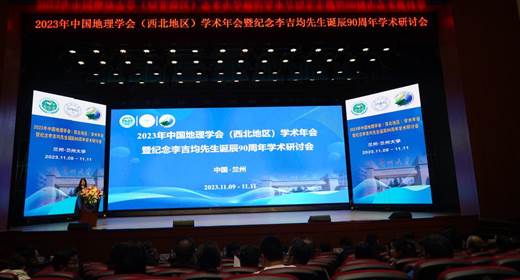
Academician of the Chinese Academy of Sciences and President of Lanzhou University, Yan Chunhua, elaborated on the development of the Northwest region and the ecological civilization construction of Lanzhou University. He expressed profound respect for the research spirit of Mr. Li Jijun and extended heartfelt thanks to all the leaders and experts participating in the conference, wishing the conference a complete success.
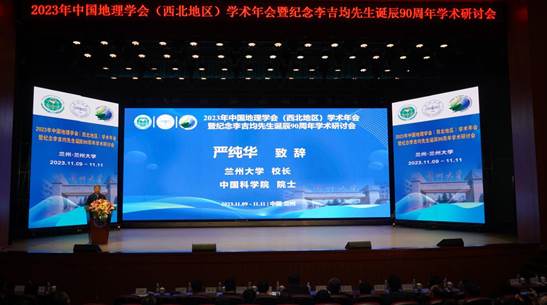
Academician of the Chinese Academy of Sciences, Academician of the Academy of Sciences for the Developing World, and President of the Geographical Society of China, Chen Fahu, stated that the Geographical Society of China would constantly pay attention to global scientific and technological development, nurtures patriotism, and continuously promotes geographical research on a global scale. At the same time, the society would actively respond to the national science and technology strategy of the new era, bringing geographical knowledge into people's lives.
Researcher at the Institute of Geographic Sciences and Natural Resources Research, Chinese Academy of Sciences, and Vice Chairman and Executive Secretary-General of the Geographical Society of China, Zhang Guoyou, pointed out that contemporary geographers should focus on core issues of the times, society, nation, and human development. They should adhere to both scientific spirit and social values, follow the concept of harmonious development between humans and nature, focus on national strategic needs and major scientific frontiers, and promote innovation in geography based on disciplinary inheritance.
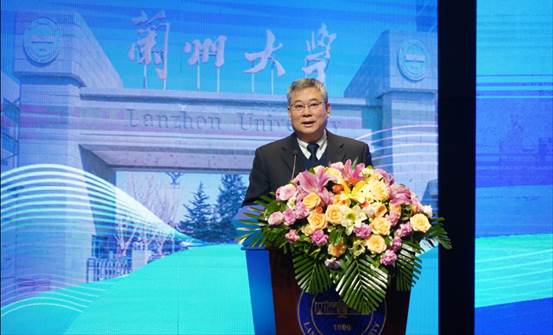
Vice Chairman of the Geographical Society of China and Party Committee Member and Vice President of Shaanxi Normal University, Dong Zhibao, stated that the discipline of geography should focus on the world's scientific frontiers, national development strategies, and regional economic and social development. The theory has been refreshing, and challenges has been escalating. This conference would provide experts and scholars with a platform for sharing new opportunities, deepening new cooperation, and demonstrating new achievements, contributing high-level and high-quality intellectual achievements to the development of the discipline of geography and making unique contributions to the high-quality development of the region.
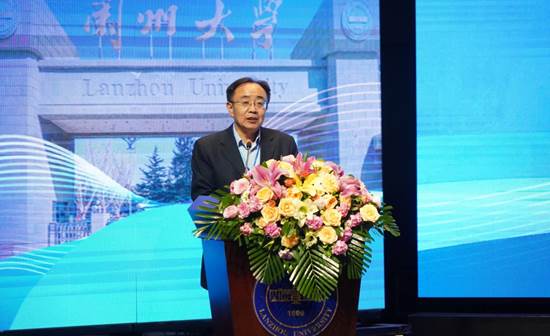
The keynote session of the first half of the conference was chaired by Li Yu, Dean of the College of Earth and Environmental Sciences at Lanzhou University. Four experts, namely Li Ding, Professor at Lanzhou University and Member of the Gansu Provincial Committee of the Chineese People`s Political Consultative Conference, Fang Xiaomin, Researcher at the Institute of Qinghai-Tibet Plateau Research, Gou Xiaohua, Party Committee Member and Vice President at Lanzhou University, and Lu Huayu, Distinguished Professor at Nanjing University, made conference reports on the themes of "From the Western Big Cross Plan to Building the National Strategic Cross Channel," "Coordinated Evolution of Deposition, Structure, and Climate-Environmental Biology in the Northeastern Part of the Qinghai-Tibet Plateau," "Adhering to the West, Inheriting and Innovating: The Inheritance and Development of the Key Laboratory of Western Environmental Education of Lanzhou University," and "On the Formation Process of Asian Geographical Landscapes."

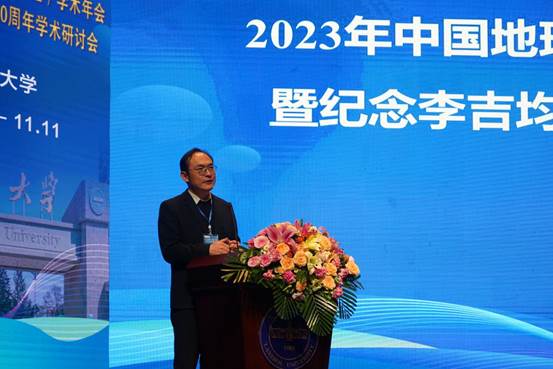
In the second half of the conference, the keynote session was chaired by Professor Nie Junsheng of the College of Earth and Environmental Sciences at Lanzhou University. Four experts, namely Wang Yongjin, Professor at the School of Geography at Nanjing Normal University, Zhang Huocai, Distinguished Professor at Yunnan University, Li Xin, Researcher at the Institute of Qinghai-Tibet Plateau Research, and Zhao Pengjun, Academician of the Academy of Social Sciences in the UK and Distinguished Professor at Peking University, made conference reports on the themes of "Research on Stalagmite Records from Orbital to Decadal Climate Variability," "Cangbai Root Deep Branches Flourishing, Green Pine Leaves Still Green for Years - Deeply Mourning Mr. Li," "Watershed System Observation-Data-Model Integration: From the Heihe River Basin to the Qinghai-Tibet Plateau," and "Comprehensive Transportation Channels and National Strategic Resource Security."

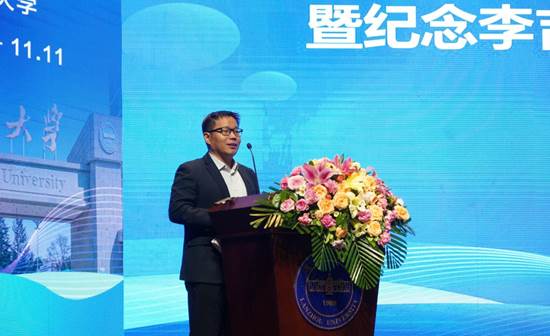
On the morning of November 11th, the conference set up sixteen parallel sessions with themes such as "Plateau Uplift and Its Environmental Effects, Landform Evolution and Cenozoic Environment, Forest Ecology and Global Change, Cryosphere and Climate Change, Environmental Archaeology and Environmental Change, Hydrological Processes and Sustainable Utilization of Water Resources in Arid Regions, Globalization and Urban Circle Development, Rural Geography and Urban-Rural Integration, Population Changes and Urban Resilience, Green Low-Carbon and Regional High-Quality Development, Urban Complexity and Urban Network, Spatial Econometrics and Disaster Assessment, New Data and Methods in Geography, Geographic Big Data and Social Computing, Ecological Remote Sensing and Environmental Change, Surveying and Mapping, GIS and Arid Zone Environment." Many geography experts and scholars made excellent reports on different topics, and participants engaged in in-depth discussions on existing research results and future development directions.
This conference effectively promoted academic exchange, discussion, and cooperation in the field of geography in the Northwest region. Participants, including experts and scholars, will take this opportunity to gather genuine knowledge and insights, respond to national policies, and contribute to the innovative development of geography in the Northwest region.
